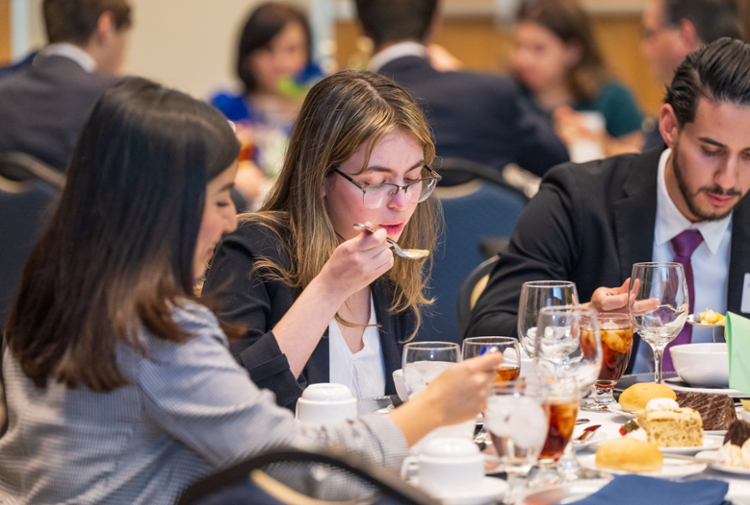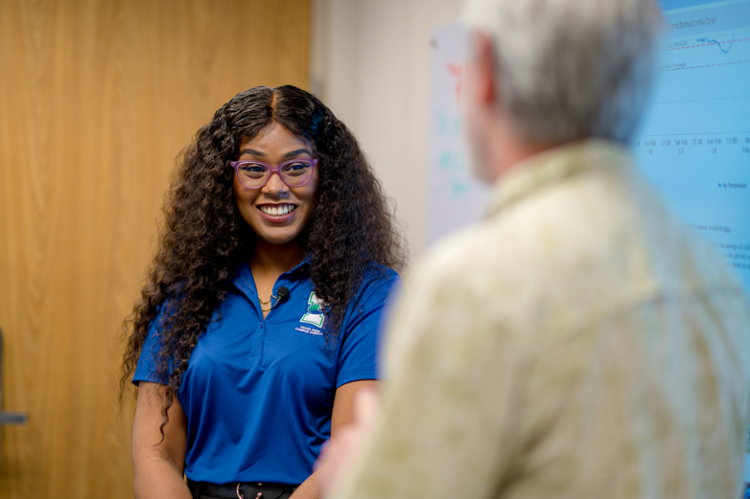Grad Student Lands $10K Grant to Extend Blacktip Shark Project Into International Waters
CORPUS CHRISTI, Texas – Found all over the world, blacktip sharks are a highly migratory species which likely move between international waters, presenting challenges for conservationists. It’s a difficult issue that is of particular interest to international graduate student Dominic Swift, whose lifelong interest in sharks has led him from his home in Liverpool, England, to Texas A&M University-Corpus Christi to study shark ecology and molecular biology.
To support his doctoral work in the Marine Genomics Laboratory at the Island University, Swift has received a $10,000 grant from the Save Our Seas Foundation in Geneva, Switzerland, to collect DNA samples from over 400 blacktips in waters managed by Mexico, Cuba, and The Bahamas.
Swift’s work is an extension of an existing project overseen by Dr. David Portnoy, assistant professor of life sciences at the Island University, that examines population structure and connectivity of blacktips in the U.S. Atlantic Ocean and the Gulf of Mexico. Swift says the main objective of his proposal is to assess genomic variation on a wider scale and determine if multinational collaboration is required for appropriate blacktip stock management.
“Blacktips were assessed as ‘Near Threatened’ by the International Union of Conservation of Nature in 2009. That’s mainly because blacktips mature late and have low reproductive output; they'll give birth once every two years to around four to five pups,” Swift said. “The U.S. is one of the few countries in the world that manages blacktip fisheries. Based on an assessment from 2012, overfishing was not thought to occur in the Gulf of Mexico, but it was unknown if it was occurring in the Atlantic.”
Portnoy said for highly migratory species like sharks, it is important to understand whether stocks are spread across international boundaries and if they are not, whether individuals move across international boundaries to feed or migrate for reproduction.
“If you have one set of regulations in the U.S. and one set of regulations in Mexico, they may be ineffective if they don’t line up correctly,” Portnoy said.
Swift says blacktips are one of the dominant shark species caught in the U.S. Atlantic and Gulf of Mexico fisheries. Female blacktips give birth in so-called nursery areas, such as Corpus Christi Bay, he adds, females are thought to return to the same nurseries each breeding season and juveniles spend their early years there.
“As they get older, blacktips move offshore into the Gulf of Mexico or the Atlantic Ocean and there they're heavily targeted by commercial and recreational fisheries,” Swift said. “To effectively manage shark fisheries requires identification of stocks. It’s important to know how factors like growth and reproduction differ among the stocks to understand how the stocks respond to fishing pressure.”
To assess stock structure, Swift is working with international collaborators to collect fin clips – a small tissue sample of a shark’s dorsal fin – to extract DNA.
“To assess stock structure, we need to assess genetic variation among samples and to accurately assess that, you need to sequence DNA in hundreds of individuals spread across these different regions,” he said.
Swift notes that his extension of the project would not have been possible without the support of the grant from Save Our Seas.
“I'm really interested in seeing how much more we can learn by having these international samples, and so having this money now means that I can expand upon our recent work,” he said.
Swift’s hope is that his project will provide a framework for multinational conservation for blacktips.
“The main threats that sharks face are from humans,” he said. “Therefore, it’s vital to protect and conserve important habitats and consider coordinated fisheries management among neighboring countries.”
Portnoy said grant awards from nonprofits like Save Our Seas are typically awarded to post-doctoral researchers or principal investigators in the first few years of employment, adding that Swift’s award is ‘kind of a big deal.’
“Being able to get a prestigious award like this from a very well-known nonprofit early in his career is a good sign that he will someday be very successful in a competitive job market,” he said.

